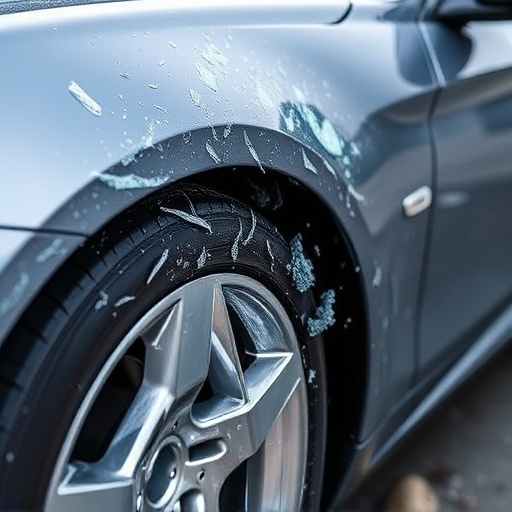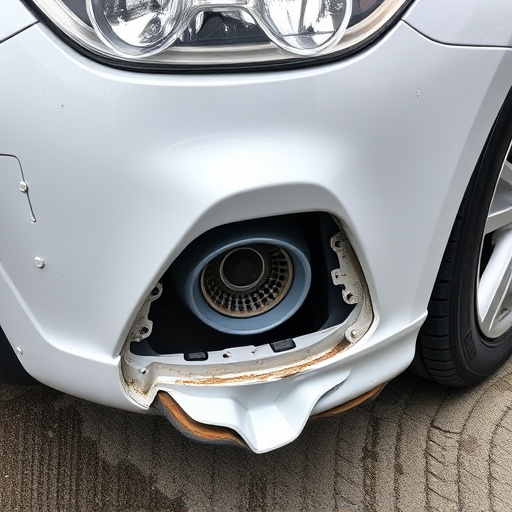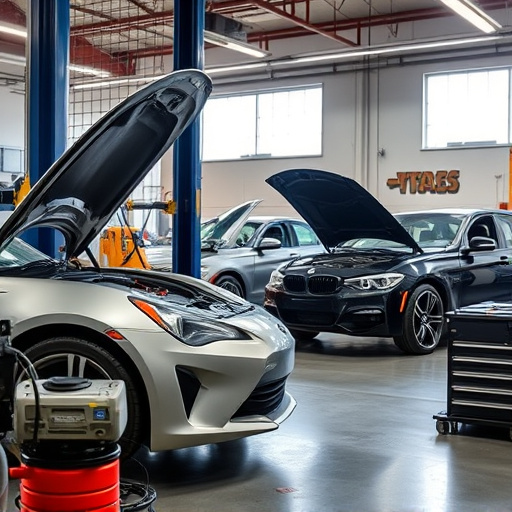Hazardous waste management is essential for preventing environmental and health risks associated with toxic chemicals, corrosive substances, and flammable liquids. Effective practices involve classification, storage, transportation, and disposal according to strict regulations by trained professionals using specialized equipment. This proactive approach safeguards communities, workers, and the environment from accidents, degradation, and health issues in various sectors, including vehicle repair industries.
Hazardous waste management is an indispensable pillar of environmental safety, preventing ecological devastation and health hazards. This critical process involves identifying, treating, and disposing of substances that pose significant risks to ecosystems and human well-being. Understanding the potential harms, implementing effective management strategies, and adopting proper disposal methods are essential to mitigate catastrophic consequences. By prioritizing hazardous waste management, we safeguard our future and ensure a sustainable world.
- Understanding Hazardous Waste: Risks and Impacts
- The Role of Effective Management Strategies
- Ensuring Safety Through Proper Disposal Methods
Understanding Hazardous Waste: Risks and Impacts

Hazardous waste management is a critical aspect that cannot be overlooked when it comes to ensuring safety in various industries. Hazardous materials, such as toxic chemicals, corrosive substances, and flammable liquids, pose significant risks if not handled and disposed of properly. These substances can cause severe environmental degradation and harm human health if exposed without the necessary precautions. Understanding the potential risks and impacts associated with hazardous waste is the first step towards implementing effective management strategies.
When left unchecked, hazardous waste can contaminate soil, water bodies, and air, leading to long-term ecological damage. Moreover, improper disposal or accidental releases may result in severe health consequences for nearby communities and workers. For instance, exposure to toxic chemicals can cause respiratory issues, skin irritation, and even long-term neurological disorders. Therefore, proper hazardous waste management, which includes classification, storage, transportation, and disposal according to regulatory standards, is essential to mitigate these risks. This process ensures that materials are handled by trained professionals using specialized equipment, thus preventing accidental disasters and fostering a safer environment for both workers and the general public.
The Role of Effective Management Strategies

Effective hazardous waste management is a cornerstone of ensuring safety in any environment, be it industrial sites, automotive workshops, or even homes with old products. It involves a strategic approach to minimize and control potential risks associated with toxic substances, preventing accidents and environmental degradation. One of the primary roles of efficient management strategies is to ensure that these wastes are properly identified, classified, and handled using specialized techniques tailored to their unique properties.
In industries like collision repair or fleet repair services where hazardous materials such as solvents, heavy metals, and asbestos might be present in vehicles, proper waste management becomes a matter of life and safety for employees and the surrounding community. These strategies include implementing strict protocols for waste storage, transportation, treatment, and disposal to prevent leaks, spills, or explosions that could lead to catastrophic collisions or health issues.
Ensuring Safety Through Proper Disposal Methods

Proper disposal methods are a cornerstone of effective hazardous waste management, ensuring safety for both workers and the environment. When handled incorrectly, hazardous materials can lead to severe health risks and environmental damage. Therefore, implementing structured protocols for disposal is paramount in any industry dealing with these substances.
In the context of vehicle repair, which often involves exposure to various chemicals like solvents, oils, and batteries, proper disposal becomes even more critical. Luxury vehicle repair shops, alongside body shop services, have a responsibility to employ safe practices that extend beyond mere compliance with regulations. By integrating comprehensive hazardous waste management strategies, these businesses not only safeguard their employees but also contribute to preserving the local ecosystem, ensuring a sustainable future for generations to come.
Hazardous waste management is not merely a recommendation—it’s an imperative for safeguarding our health, environment, and future. By understanding the risks, implementing effective strategies, and adopting proper disposal methods, we can mitigate catastrophic events and ensure a sustainable tomorrow. Investing in robust hazardous waste management practices is a crucial step towards fostering safety and preserving the well-being of communities worldwide.














